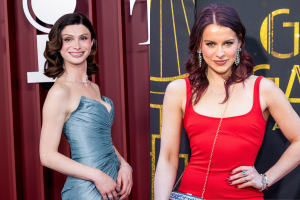Honour Bayes: Corporate sponsorship is a two-way street
Corporate sponsorship has been at the forefront of my mind recently. I’m not alone – in a recession this bad everyone and their mother in the arts industry is asking the question; in the face of crippling cuts, just where is the money going to come from?
Let’s be clear, I’m not happy about oil companies soothing their public conscience with the help of the National Theatre, the Royal Shakespeare Company, the Southbank Centre (shamefully this list just keeps growing) the British Museum and Tate.
These associations seem so questionable that one has to wonder if Mike Bradwell had a point in 2010 when he wrote “It is common practice among development managers to seek out companies with an ‘image problem’ and offer, in exchange for sponsorship, respectability by association… What (they) don’t realise or choose to ignore is that reputation management works both ways. By consorting with polluters, arts organisations are polluting their own reputations. Their integrity is compromised.”
After hearing about the extent of damage BP and Shell do to the world at the State of The Arts conference earlier this year I certainly felt compromised. Again I’m not alone as the BP protests at the What Country Friends Is This season prove.
But whilst these actions shine a light on the questionable side of such funding, other stories can be found of more appropriate capitalist connections.
To prove my point we only need to look a little further along the Southbank to the Underbelly’s big purple cow. I was recently heartened to hear that the relationship between the Udderbelly and E4 is a two-way street. The combined interest for both organisations in emerging talent and comedy means they are matched in many more ways than the colour of their logos. Artists who may never be seen on the small screen love the association this sponsorship gives them, and it often boosts careers.
Similarly the Underbelly’s new project, cabaret treat Wonderground, has found a partner in MasterCard, whose infamous “priceless” tag line is attached to each board. This connection undoubtedly promotes the credit card as being part of hip cool thing.
But it also adds to this new venture a wealth of tangential audience understanding through a term peppered all over modern media; giving an unknown project a reassuringly familiar positive association with potential ticket buyers.
Even with both parties benefiting some may still side with Bradwell and feel any engagement with corporate sponsorship turns the arts into a soulless market place. But the current financial climate is a dry one and it just doesn’t seem possible to throw the baby out with the bathwater.
To continue making art we cannot afford to eschew working with big business altogether and as far as I’m aware E4 has never threatened the existence of an entire species.
Accepting private funding does not have to be a dirty thing, but if you choose to ignore the ethics of those funding you and bed down with an oil company it can be nothing less. Acceptable corporate partners are out there for arts organisations, they just need to be found.












